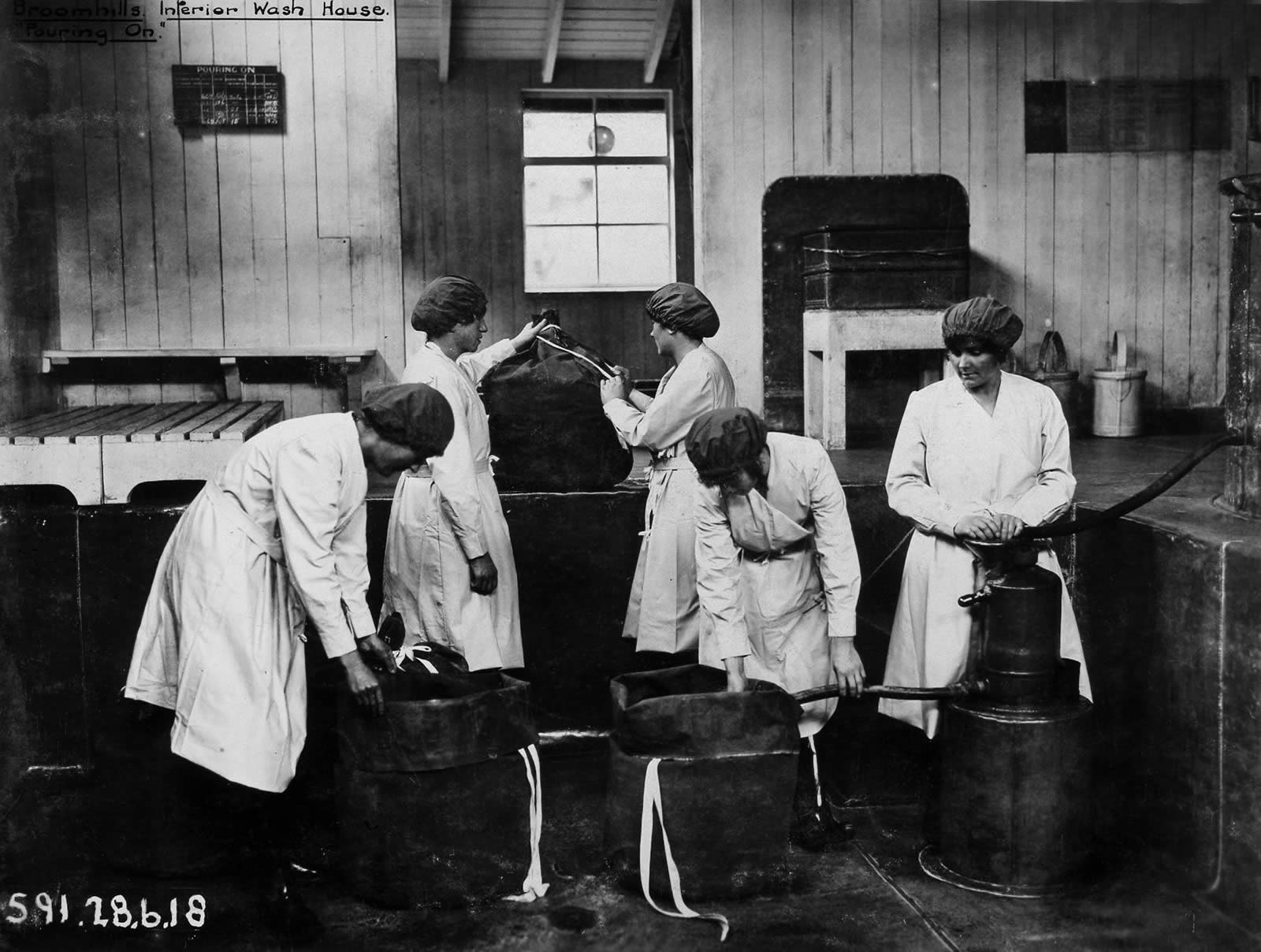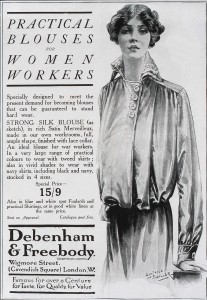Women’s war work
By July 1916 it was estimated that over three quarters of a million women had taken up ‘war work’. The conflict opened up roles previously considered inappropriate for them– heavy industrial work, commercial driving, complicated and dangerous chemical work, the production of explosives.
These new jobs sometimes offered women new opportunities, increased independence and higher wages. Companies tried to tap into this feeling – and a new market of female workers. Adverts offered ‘becoming blouses… guaranteed to stand hard wear’ – elegance in the factory.
However expensive fashions would have been out of reach to the majority of women employed in ‘war work’, who were predominantly working class. Furthermore, the reality of the work – especially for those making explosives for Britain’s forces, the famous ‘munitionettes’ – was often faraway from the image of elegance, independence and industry that adverts and government propaganda portrayed.
The sometimes horrifying reality of war work is shown up by the case of Lily Moody. Mrs Moody lived in Brixton and worked at the Royal Arsenal in Woolwich, London, producing the explosive Trinitrotoluene (TNT) in one of the Arsenal’s ‘Danger Rooms’.
Producing these chemicals involved the use of nitric acid, which was poisonous. Outward signs of poisoning included the yellowing of a woman’s hair and skin, leading munitions workers to be called ‘canary girls’. Prolonged exposure could cause long-term health problems and organ failure.
On 31 August 1917, Lily was signed off work suffering from ‘slight’ poisoning. She resumed work on 18 September (against her will, according to her). However, in November 1917 she was again signed off work, this time because she was seven months pregnant. Lily’s baby was stillborn, a now well-known side effect to TNT poisoning.
Lily attempted to claim compensation from the Ministry of Munitions, for both the loss of her child and because the poisoning had left her in a state of ‘permanent incapacity … disfigured with twisted and contorted features’.
Her claim was refused. The Ministry’s doctor argued that she had only ever suffered ‘light’ poisoning from her exposure to the TNT, and that the loss of her child was due to ‘natural causes’.
Lily fought on, writing a series of extraordinary letters to the Ministry of Munitions and Andrew Bonar-Law, the Chancellor of the Exchequer. She demanded that her poisoning at Woolwich, and the destruction it had visited on her life, be recognised by the government and compensated.
Lily was not successful; the government would not recognise the long-term effects of TNT poisoning. But her letters gave a chilling warning of the consequences of disregarding the suffering caused by the dangerous wartime service she, and many other British women, engaged in:
‘The glamour of the war will soon be ended, the men will be back and in the cold light of day a reckoning will be demanded: How did you treat our women? And they will insist on a straight answer, nor may lies and evasions suffice.’

H M Explosives Factory Gretna Dumfries Wash House (catalogue reference: MUN 5/297)


